Senior business analysts are experienced professionals who offer advanced services to companies. These consultants can also act as project managers and advisors, providing research, analysis, and reporting on a company’s needs. A senior business analyst’s resume should demonstrate your analytical skills and ability to understand a company’s business needs and come up with solutions that meet those needs. A strong summary is essential for getting an interview for any job. To write an effective resume, you need to understand who you are as a candidate, what job you want, and what you can offer any potential employer. A good resume should give employers confidence that hiring you will be a good decision for their business. We’ve put together this formatting and sample guide to help you create an effective senior business analyst resume. Use the tips to start building your resume efficiently and effectively!
Senior Business Analyst Resume Example

Download This Senior Business Analyst Resume as PDF
Data Analyst Resume Example
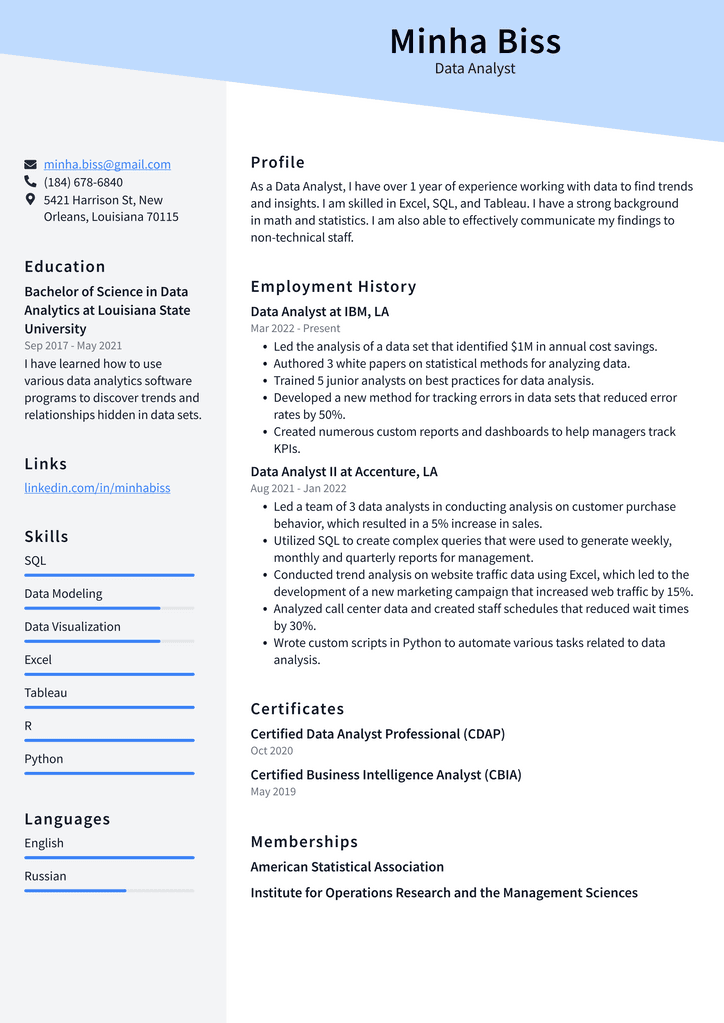
Download This Data Analyst Resume as PDF
Functional Analyst Resume Example
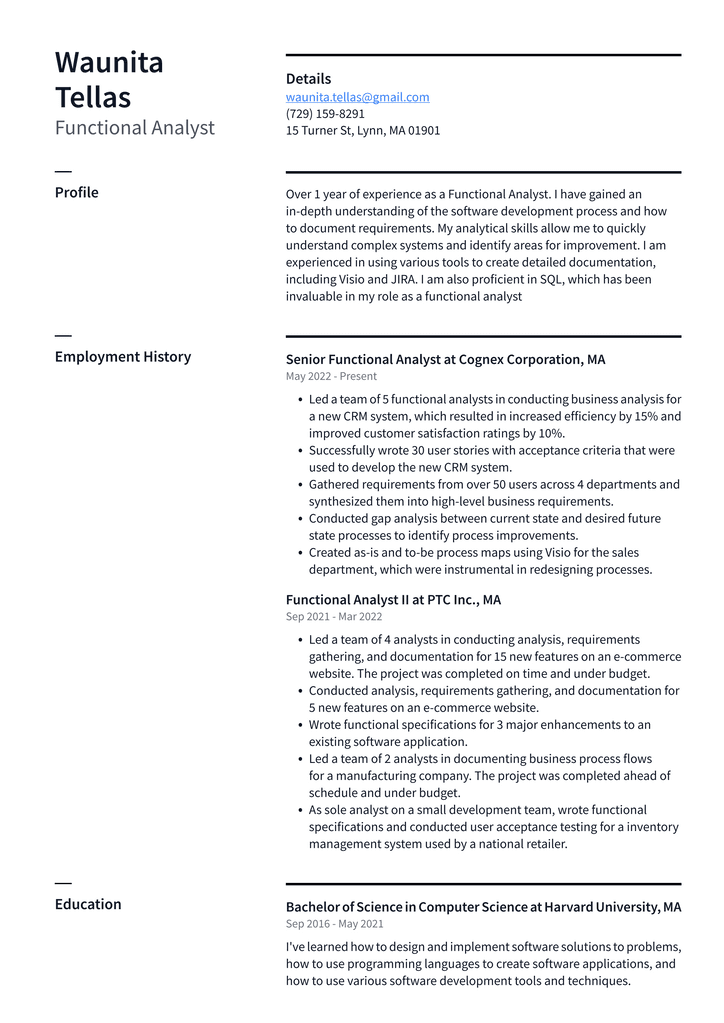
Download This Functional Analyst Resume as PDF
Business Process Analyst Resume Example
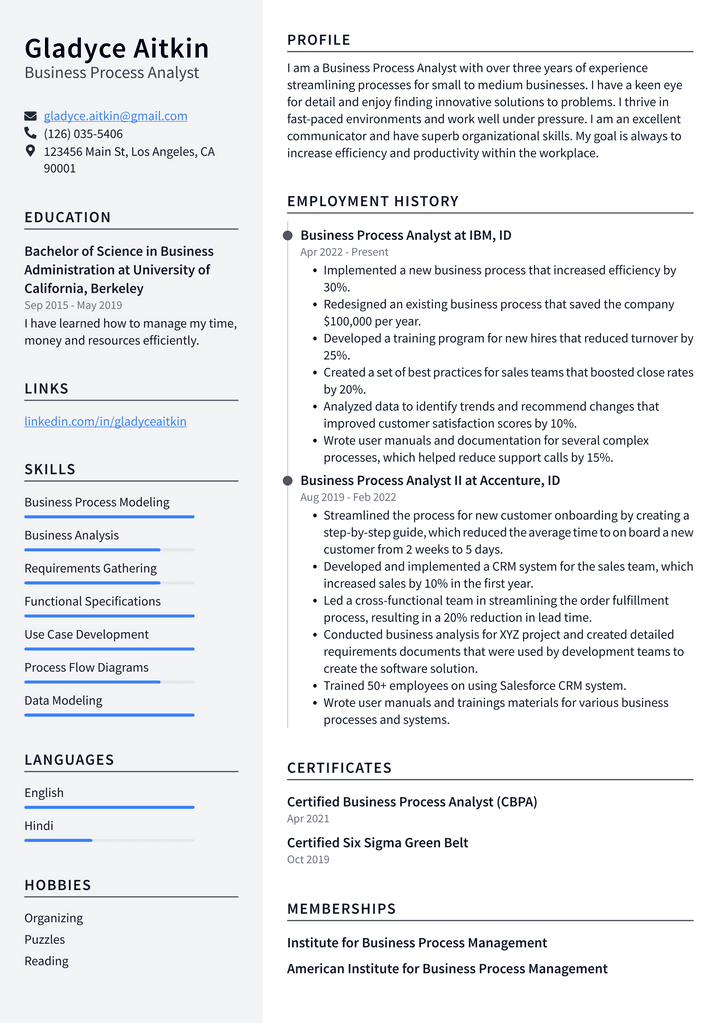
Download This Business Process Analyst Resume as PDF
Requirements Analyst Resume Example
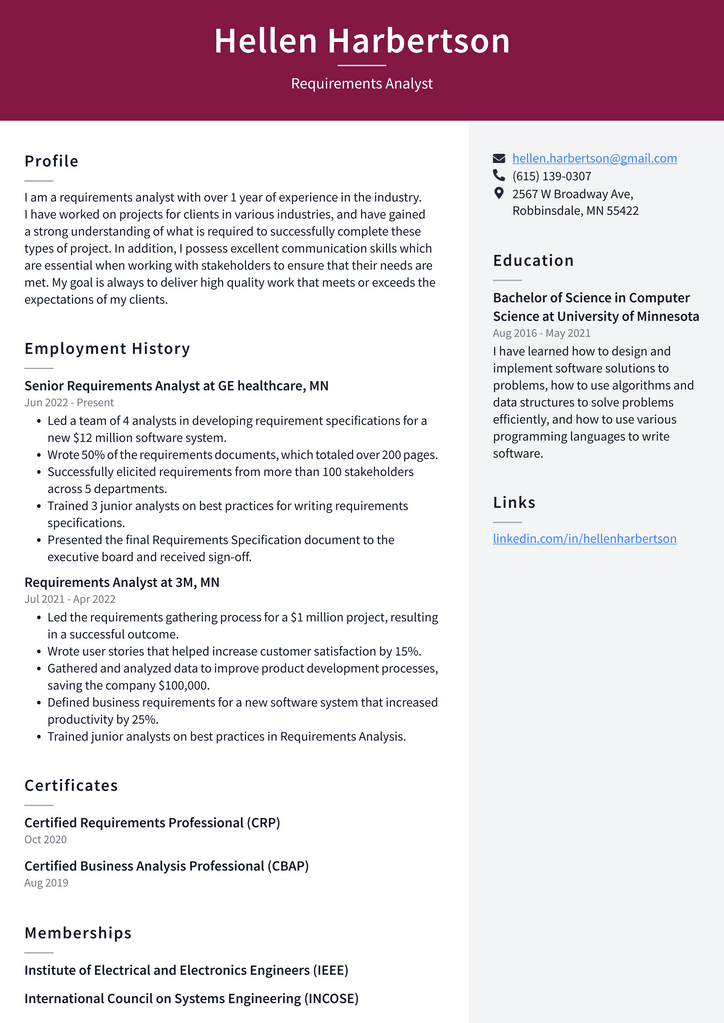
Download This Requirements Analyst Resume as PDF
Business Systems Analyst Resume Example
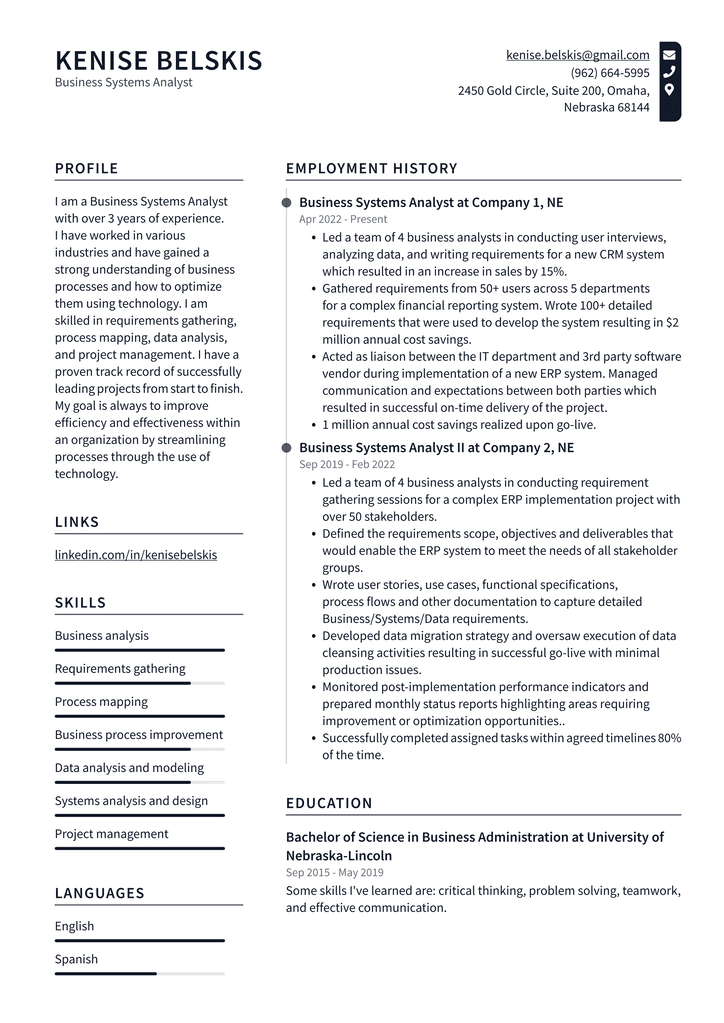
Download This Business Systems Analyst Resume as PDF
Business Intelligence Analyst Resume Example
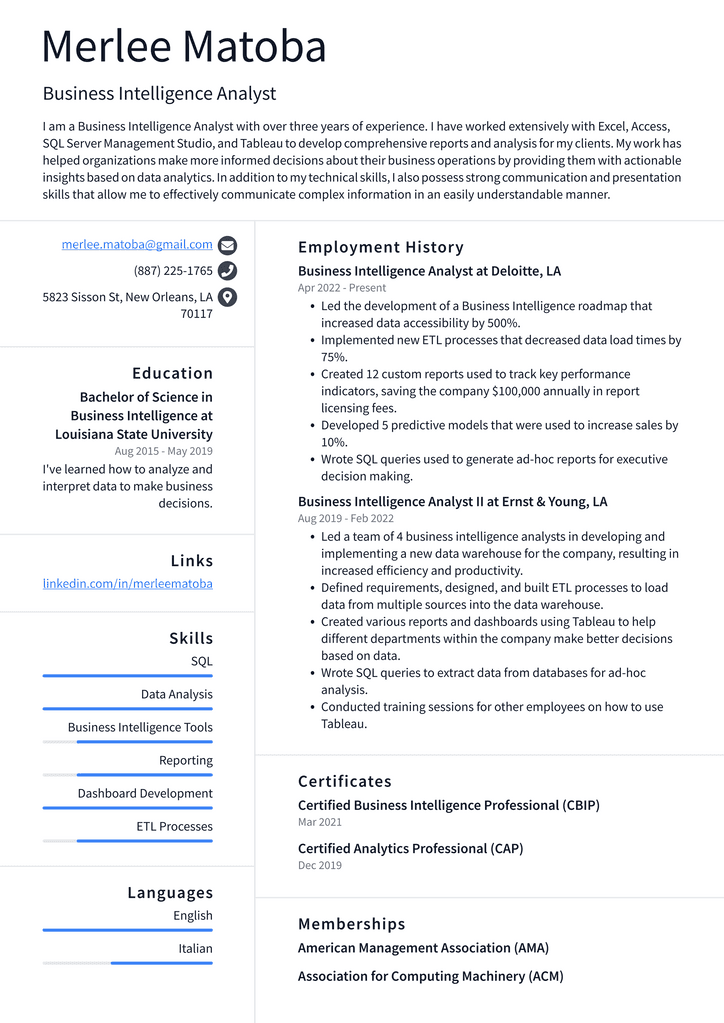
Download This Business Intelligence Analyst Resume as PDF
Resume Basics
The first step to writing a successful resume is clearly understanding the document’s basic format and content requirements. While there are some differences in the format between industries, there is a standard, general template that most resumes follow. Less than 10% of employers will look at a job seeker’s cover letter. Thus, the summary is the only document you have to impress an employer and get an interview. Make it count!
Summary Sentence
A summary sentence is a short description of your skills and experience that appears above your “professional profile” section. Since it is only one or two sentences long, it allows you to quickly and effectively summarize the essential information on your resume. Regarding senior business analyst resume writing, your summary sentence should be a “tougher” version of your professional profile statement. A good summary should be a few short sentences that clearly and concisely state what makes you a great candidate for the job. It should be a “tougher” version of your professional profile statement. You want to show that you are an experienced analyst who can apply your skills to the job and find practical solutions for complex business issues. A summary should be a few short sentences that clearly and concisely state what makes you a great candidate for the job.
Professional Profile
This is the first section of your resume, and it should be no longer than two to three short paragraphs. You want to describe your professional background and show why you are a good candidate for the job. The best way to do this is to list your accomplishments.
Education
This section appears at the top of most senior business analyst resume samples. It would help if you listed your highest level of education (Bachelor’s, Master’s, Ph.D.) followed by the dates you graduated. Your education is important because it shows prospective employers that you have the necessary knowledge and skills to do the job. It also indicates that you have a specific discipline and commitment to your field of study.
Skills Section
This section is where you list your skills and qualifications. It would help if you did this in list format, separating each skill with a line break. You want to make sure to use action verbs and give specific examples for each skill you list. For example, putting “Proficient in analyzing financial data” is not as effective as “Proficient in analyzing financial data to find and correct inaccuracies in accounting reports.”
Key Skills/Accomplishments
This slightly longer section acts as a bridge between your skills and experience and the rest of your resume. In this section, you want to briefly state two or three of your most important or relevant skills, followed by a short paragraph explaining how you used those skills in your previous job(s). For example, “Proven ability to work with budget constraints” followed by a short paragraph about your experience working in a large company with a limited budget for new projects. These paragraphs should focus on your accomplishments. You want to show employers that you can get the job done.
Recommendations
This section should include one or two short paragraphs from your former bosses or co-workers who can speak to your skills and experience. Including a few short paragraphs from people who know you well is an excellent way to boost your resume. For example, if you have worked with well-known companies or have done impressive projects, you should include a short paragraph from your manager or someone in that company mentioning your work. This shows prospective employers that you have done a meaningful and relevant job.
Conclusion
The conclusion of your resume is your last chance to sell yourself to a potential employer and earn a call-back. You want your resume to stand out and draw attention, but you also want it to be clear, concise, and accurate. The conclusion is a great place to use a catchy summary and an eye-catching closing sentence. This can help you stand out from the crowd. You can also use the conclusion to restate your interest in the company and highlight how you can help them achieve its goals. After all, the senior business analyst resume is about more than just you and your qualifications. It demonstrates your ability to meet a company’s needs and solve its business challenges. Keep these things in mind as you write your resume; you will have a complete and influential document to help you get the job you want.
Summary
A senior business analyst’s resume should be clear and concise. Your resume should show that you are a problem-solver who can meet a company’s needs and help them achieve its goals. Your resume should also be personalized for each job you apply for. Keep these things in mind as you write your resume, and you will have a complete and influential document that will help you get the job you want.